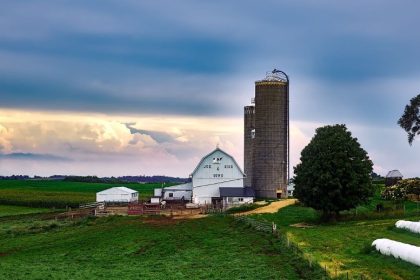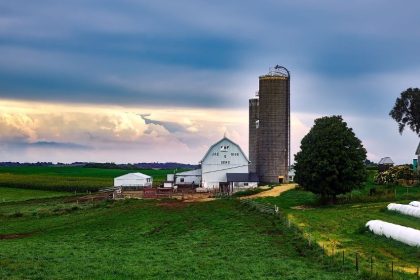Minnesota Ag Omnibus Bill Aims to Address Multiple Challenges

ST. PAUL, Minn. — Minnesota Gov. Tim Walz signed an agriculture omnibus bill into law on Thursday that provides relief to farmers for drought and other climate change related challenges, while also investing in broadband and a wide range of agricultural programs.
“As farmers grapple with extreme weather, costs of modernization, and unforeseen events like avian influenza, this bipartisan bill helps to address some of the most urgent issues facing our agricultural producers,” the Democrat said as he signed the legislation.
“I am proud that we can come together and make investments in supporting farmers through the issues of today while also investing in the future of the state’s agriculture,” he added.
Minnesota farmers have been beset by a number of challenges in recent years. In addition to the coronavirus pandemic, much of the state suffered from drought conditions for most of 2021, and then it saw an outbreak of the avian flu.
And like everybody else, farmers, who depend on predictable weather, have been grappling for years with the unpredictable nature of changes wrought by climate change.
While a warming planet has lengthened the growing season in the Midwest overall, it has also altered other aspects of the weather such as changes to temperature, cloud cover and rainfall.
Warmer temperatures also encourage the advance of invasive species, plant diseases and pests that are spreading into new regions.
And it’s not just farmers who specialize in crops that are feeling the effects. Livestock exposed to higher temperatures and the other weather conditions they bring with them, tend to eat less, breed less and have a harder time raising their offspring.
For those farmers, climate change has meant smaller herds and a longer time getting to market for everything from bacon to milk to eggs.
The new bill would provide:
- $18.4 million in drought relief including direct grants to farmers, relief through the Rural Finance Authority, and $5 million to the Department of Natural Resources to replace drought-killed seedlings and support reforestation efforts.
- $1.5 million for the Agricultural Emergency Account to support animal disease preparedness and response, as well as $1 million to the University of Minnesota to purchase veterinary diagnostic equipment to test for animal diseases.
- $1.25 million for the Bioincentive Program to encourage commercial-scale production of advanced biofuels, renewable chemicals, and biomass thermal energy.
- $1.25 million for the creation of a new, innovative down payment assistance program targeted toward beginning farmers.
- $827,000 for emerging farmers, to support beginning farmers from underrepresented communities enter the field of agriculture; and
- Over $200 million to support broadband development and the establishment of a lower population density pilot program.
The state also announced on Thursday that due to the risk of spreading bird flu, it is extending its ban on poultry-related events to July 1.
The ban includes all poultry swaps, fairs, exhibitions, and other events where live poultry are brought together.
According to State Veterinarian Dr. Linda Glaser, cases of the highly pathogenic avian influenza have been on the decline, but “a small number of HPAI detections in new counties is cause for us to extend the ban.”
“This ban primarily impacts backyard flock owners and is intended to protect their birds from a potential pathway for the virus to spread at poultry events,” she said in a written statement.
Dan can be reached at [email protected] and at https://twitter.com/DanMcCue.






















